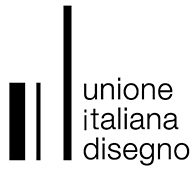Forest Therapy. The challenge of the future for the project of living environments
edited by Ornella Zerlenga, Valeria Menchetelli, Alex Gesse
The choices and methods that have been adopted since the industrial revolution concerning land consumption and the consequent worrying outcomes (massive urbanization, high population density, pollution, deforestation, climate change, intensive livestock farming, etc.) have, and are, increasingly leading to serious damage and imbalances to the psycho-physical well-being of our species. At the same time, and as another side of the same coin, in the face of these scenarios, there is a growing awareness that it is not Nature but the human species itself that must be ‘saved’ because of its behavior on the Planet. The recent global pandemic, which forced communities to isolate themselves for a long time in closed environments and interrupt social relations and almost all forms of production and work, has well demonstrated how Nature is capable (especially in ‘Westernized’ countries) of regaining ground in a matter of months, initiating a process of natural habitat regeneration.
During the pandemic, this context made people reflect a lot on the need for a so-called ‘return to Nature’ and, at the same time, on the resumption of healthier and more balanced lifestyle behaviors. Much was said about the urgency of ‘slowing down’ the contemporary lifestyle and, consequently, the need to live in natural living environments and increasingly outdoors, believing that these virtuous behaviors could act to the advantage of the ‘biological’ rhythm of life (in the medical sense, the circadian rhythm).
On the contrary, immediately after the pandemic, the pace of life has become even more accelerated and frenetic, both to make up for the ‘lost’ productive time (especially for profit) and for the increasingly frequent use of the same digital technologies for interpersonal communication (telematic platforms) that, introduced during the lockdown to counteract the interruption of school and university training activities, as well as of the tertiary and quaternary sectors of the productive world, contribute today to an even more sedentary life and to a vision regulated by technological rather than biological time. And, since technological progress is unstoppable, the human species (which has initiated this process since the dawn of time) today finds it difficult to keep up with the amount of information and actions, that the human memory has to take in, select, and manage given the 24 hours of the day.
It is now scientifically ascertained how much accelerating activities beyond ‘human’ capacity and, in addition, living in high-density habitats that are increasingly artificial and poorer in Nature alter the psycho-physical balance, just as it is obvious that the challenge of the future cannot be to reset everything to zero and return to living in what, for thousands of years, has been the ‘real’ home of the human species, made of tree-lined walls, earthy floors, and starry ceilings so much so that the idealized principle of the natural home goes back to the primitive architectural concept of the hut as formulated by Vitruvius. However, recent medical studies increasingly demonstrate that living in natural environments has a therapeutic anti-stress and anti-depressant function because certain chemical agents emitted by the flora actively stimulate the immune system, strengthening and increasing the body’s defense functions even against pathogens.
The WWF’s recent Living Planet Report 2020 demonstrates by data how the abandonment of the anthropocentric, self-referential, and speculative model in favor of an ethical and responsible attitude, aimed at preserving and restoring the planet’s ecosystems and biodiversity, constitutes an urgent challenge, and how environmental protection is one of the global priorities and increasingly requires a dialectical and historical interpretation of the relations between human societies and natural environments. In this sense, particularly interesting are the studies and actions conducted in the field of Forest Therapy, a recent current of scientific thought that combines the specific needs of people with those of their living environments. Through multidisciplinary approaches in several fields (first and foremost, planetary health and forest medicine), Forest Therapy identifies virtuous behaviors based on a concept of ‘health’ as the outcome of a process of adaptation of the human being to his physical environment, and such as to promote the improvement of living conditions through nature connectedness, interpersonal relations and social cohesion. Embracing these concepts in the planning fields of territorial, landscape, urban, architectural, and industrial design means activating virtuous processes capable of designing with the ‘natural’ Nature of our species to return significant impacts on the promotion of this practice in the different contexts of life.
Deadline for abstract submission: May 13, 2024
For more info:
https://disegnarecon.univaq.it/ojs/index.php/disegnarecon/announcement
